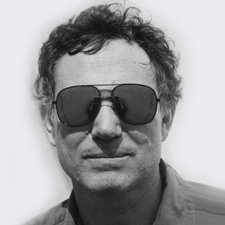The Dictator (Part 1): Difference between revisions
m Text replacement - "|headerstyle = background:#ccf;↵|labelstyle = background:#ddf;" to "|headerstyle = background:#7fa9d0; |labelstyle = background:#7fa9d0;" |
m Text replacement - "style="width:100%; overflow:auto;">" to "style="width:95%; overflow:auto;">" |
||
| Line 75: | Line 75: | ||
48:50: Music, cannon fire, explosions. | 48:50: Music, cannon fire, explosions. | ||
<div class="toccolours mw-collapsible mw-collapsed" style="width: | <div class="toccolours mw-collapsible mw-collapsed" style="width:95%; overflow:auto;"> | ||
<div style="font-weight:bold;line-height:1.6;">Legacy Synopsis</div> | <div style="font-weight:bold;line-height:1.6;">Legacy Synopsis</div> | ||
<div class="mw-collapsible-content"> | <div class="mw-collapsible-content"> | ||
Revision as of 06:46, 25 October 2024
| Series | |
|---|---|
| Work In Progress | |
| Original Broadcast Date | |
| 1991 | |
| Cast | |
| Joe Frank | |
| Format | |
| Absurd Monologue, Narrative Monologue, 55 minutes | |
| Preceded by: | Iceland (Part 2) |
| Followed by: | The Dictator (Part 2) |
I'll always remember the great drought, when it didn't rain for two years.
The Dictator (Part 1) is a program Joe Frank produced as part of the series Work In Progress. It was originally broadcast in 1991.
Synopsis
Joe (a child) tells of the great drought afflicting his village; people, including his sister, explode and burst into flame.
6:50: It rains for 3 months, drowning everybody and thing, except Joe, who grabs an uprooted tree trunk, floats to a new village, where a family adopts him.
7:50: The new village is farmers. A cruel neighboring tribe kills all, except Joe, who buries himself, breathes through a reed during the raid.
9:40: Joe, now the dictator, describes his ultra-safe bunker, his dozens of doubles, goes to the surface to encourage his troops.
19:40: Joe tells the story of an oil seller who had 4 bottles of especially-valuable oil. He gave 1 to a neighbor who burnt his house down, the second to another neighbor who has an affair with his wife, who bears quadruplets dedicated to assassinating him, the third to a holy man who cursed him.
22:30: 'Freedom... is so exhilarating...' Joe, the dictator, has to be careful about whom he trusts.
28:00: Joe played a game when a child, putting as much dirt as possible in ears, nose, mouth; Joe always won. Then he began burying himself, had to have dirt cooked into all his meals. Eventually he became his own garden, ate what grew on him.[1]
30:40: 'Moral conscience is a hall of mirrors...' what is good behavior changes over time and place, is relative; Joe expatiates on this.
35:00: Joe says power is better than morality, delivers a paean to power.
39:10: Circus comes to town when Joe is 15. Magda, the beautiful contortionist, mesmerizes Joe. One evening she can't untie herself. Joe runs down to untie her. Circus master adds Joe untying Magda to the act.[2]
41:40: Joe the dictator: the attacking army is winning against him, but Joe is defiant.
46:30: Joe repeats, 'Help me unravel this knot and find my way back to the town where I first saw you, where all this started, this thirst.', with different put-on voices.
48:50: Music, cannon fire, explosions.
A great drought decimates a village and is followed by flood. A band of raiders attacks a village and cuts off the thumbs of the villagers. Joe is a dictator in a fortified underground bunker. He delivers a speech on the battlefield. Rooting out enemies. Sounds of battle. Eating dirt. Moral relativism. Is there a moral imperative to cause suffering in others? Meditation on power. Joe falls for a contortionist in a circus. Joe claims his is on the verge of victory as his forces are decimated, taunts the enemy. "help me unravel this knot and find my way back to the town where I first saw you, where all this started, this thirst."
Music
- "They Drive by Night" - David Van Tieghem (from Strange Cargo, 1989) | YouTube [Intro]
- "One More Night" - Can (from Ege Bamyasi, 1972) | YouTube [20:22]
- "Principles of Lust" - Enigma (from MXMXC a.D., 1990) | YouTube [31:52]
- "Nalelela" - Ray Lema (from Gaia, 1990) | YouTube [43:00]
Miscellanea
- Source of the audio for the short film "Dirt"
- Presumably inspired by Saddam Hussein and the Gulf War, which took place in 1990-91
Additional credits
The original broadcast credits state: "Written by Joe Frank, and created in collaboration with Arthur Miller and David Rapkin. Mixed by Theo Mondle. War bed created by Jerry Summers. Special thanks to Sheila Bjornlie and Ariana Morgenstern."
